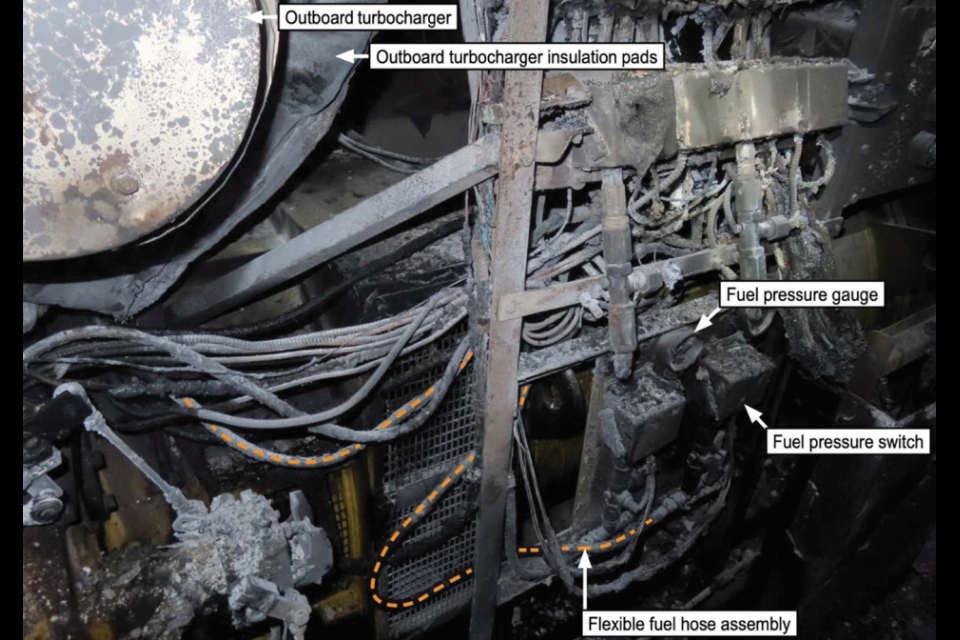Only use flexible hoses where necessary and have a classification society check any engine modifcations. The Nautical Institute gives this advice after flexible hoses, which were installed during auxiliary engine modifications on a RoRo vessel, caused an engine room fire.
The Nautical Institute gathers reports of maritime accidents and near-misses. It then publishes these so-called Mars Reports (anonymously) to prevent other accidents from happening. A summary of this incident:
While departing port, a RoRo vessel suffered a fire in the auxiliary engine room. The fire was contained and subsequently extinguished without injury to the crew, but the equipment in the auxiliary engine room suffered serious damage.
The fire originated below the outboard turbocharger when a small-bore flexible fuel hose failed, spraying marine gas oil (MGO) onto a high temperature surface, where it ignited.
The auxiliary engines had been modified many years earlier, when low pressure fuel alarm pressure switches and gauges were installed using flexible fuel hoses. This was contrary to MSC/Circ.647 – Guidelines to Minimise Leakages from Flammable Liquid Systems, which states that flexible hose assemblies should only be used where necessary to accommodate relative movement between fixed piping and machinery parts.
Also read: Green Instruments to supply detectors to shipyard to reduce ship fires
Investigation findings
In this case, flexible hose assemblies were not needed for this purpose. Furthermore, the hoses were routed under the turbochargers covered by the insulation pads, exposing them to the risk of contact with high temperatures and making them difficult to inspect.
The investigation also established that the initial proposal to modify the system was not submitted to the classification society for approval and the installation was not surveyed on completion.
Also read: Cargo fire takes ten days to extinguish
Advice from The Nautical Institute
- The risks associated with modification to safety critical equipment should be considered before and during the work being completed.
Also read: Which factors play a role in rising number of ship fires?
Picture: Damaged auxiliary engine and flexible hose routing.
Mars Reports
This accident was covered in the Mars Reports, originally published as Mars 202351 that are part of Report Number 373. A selection of the Mars Reports are also published in the SWZ|Maritime magazine. The Nautical Institute compiles these reports to help prevent maritime accidents. That is why they are also published (in full) on SWZ|Maritime’s website.
More reports are needed to keep the scheme interesting and informative. All reports are read only by the Mars coordinator and are treated in the strictest confidence. To submit a report, please use the Mars report form.








